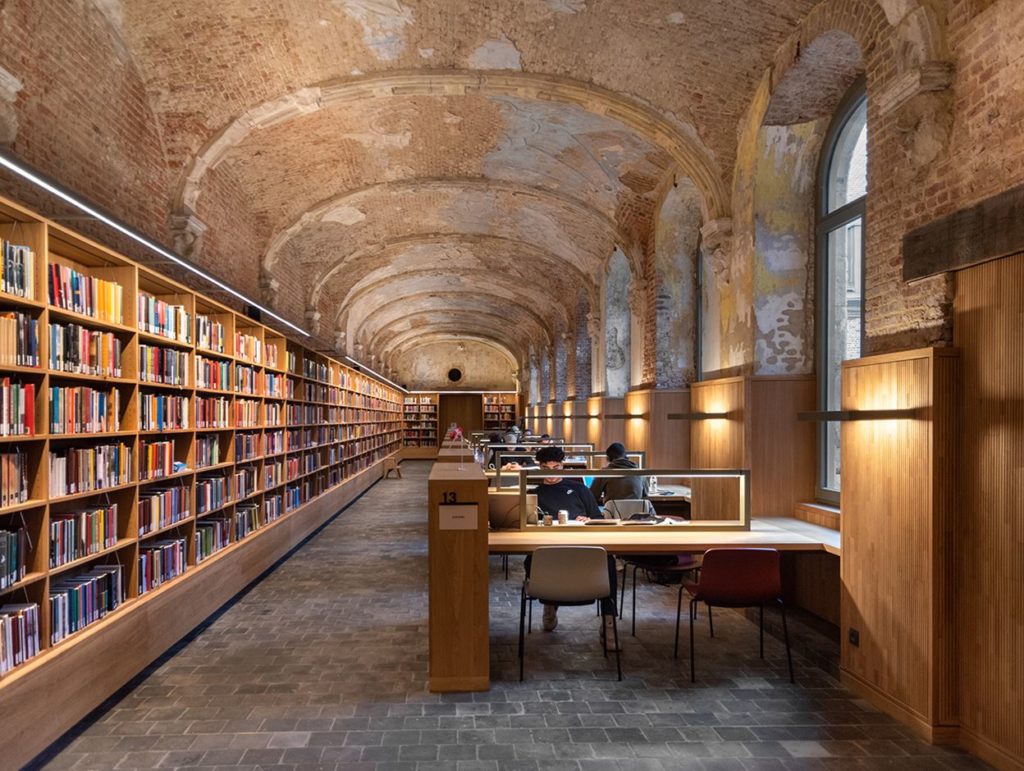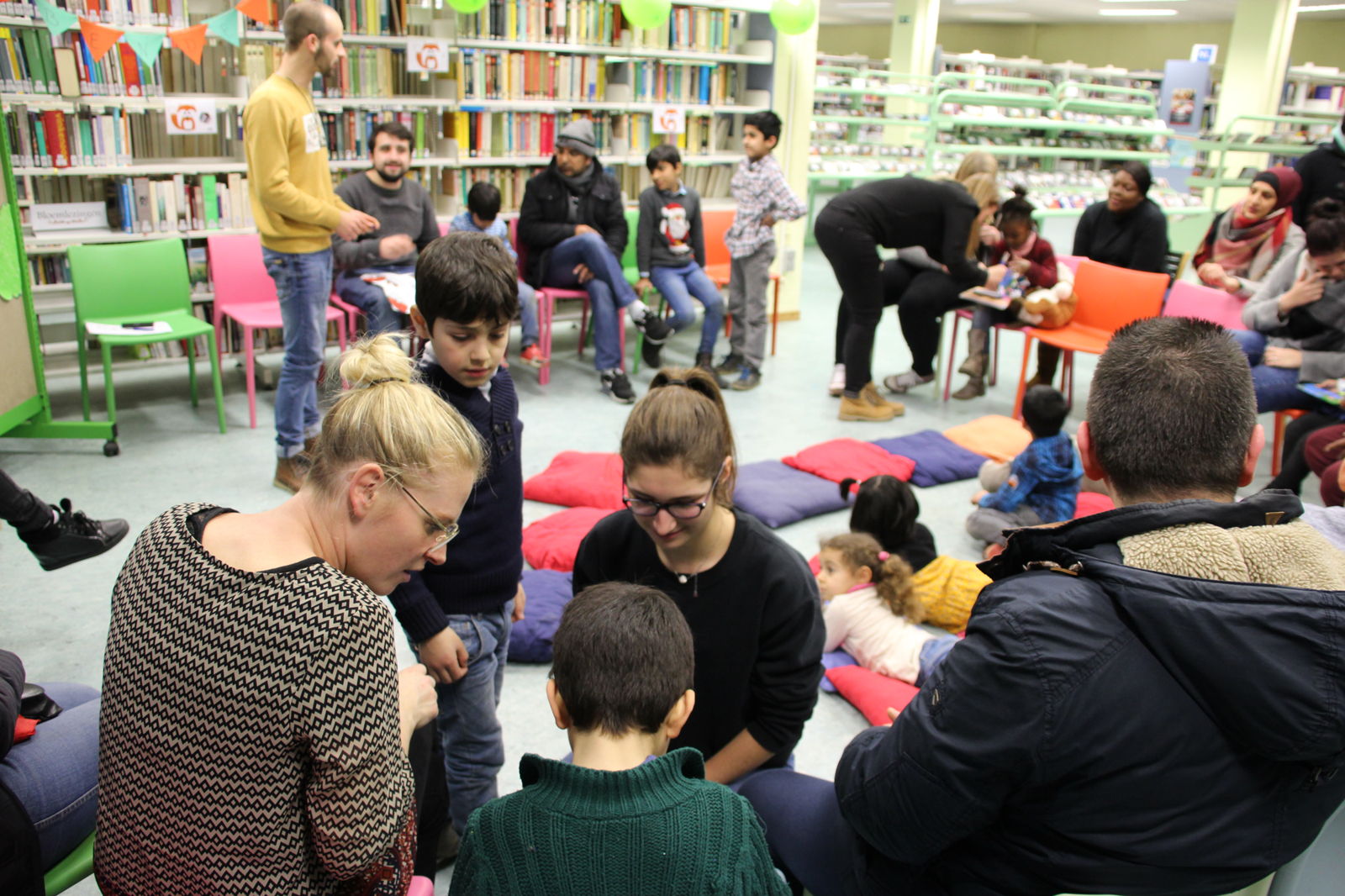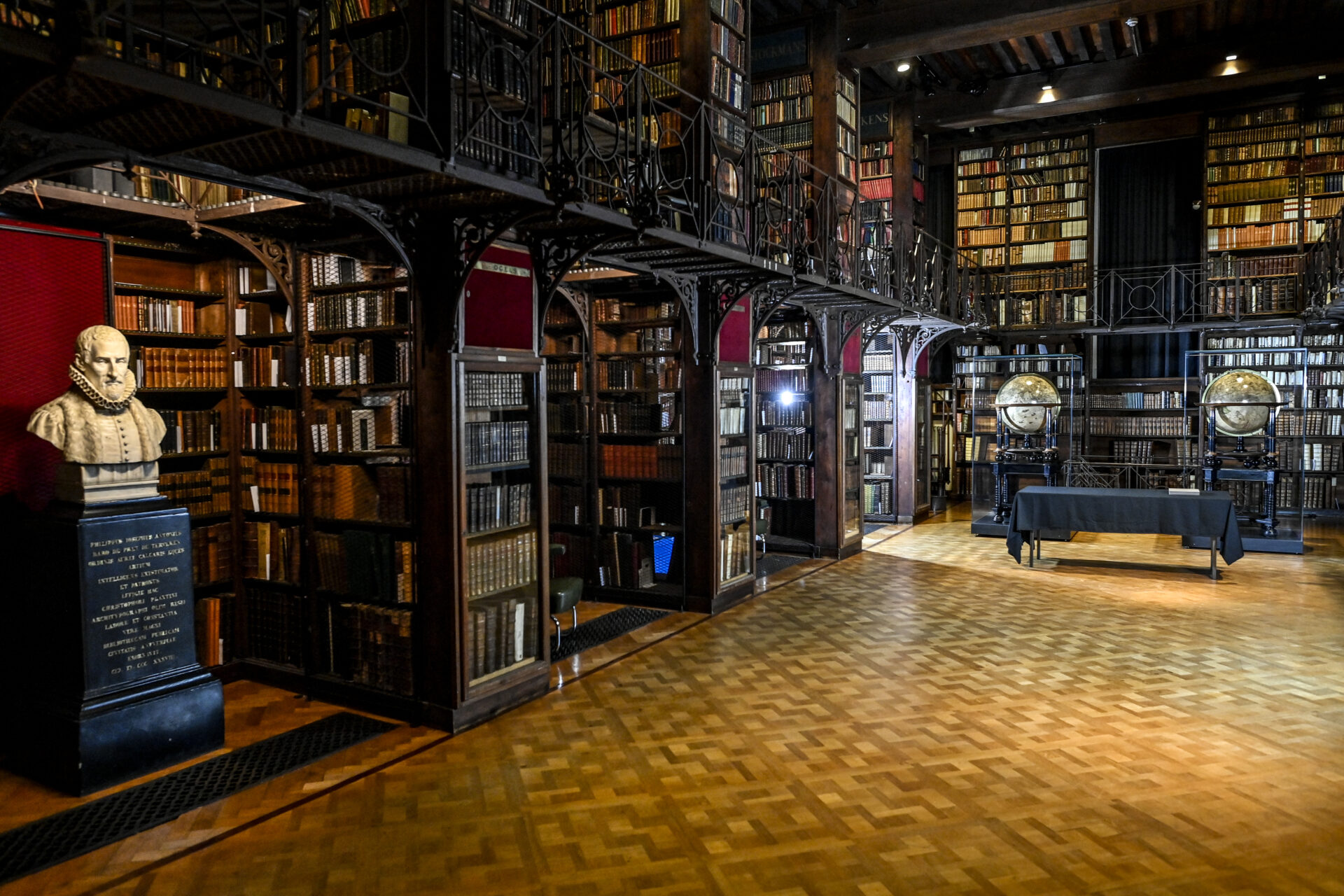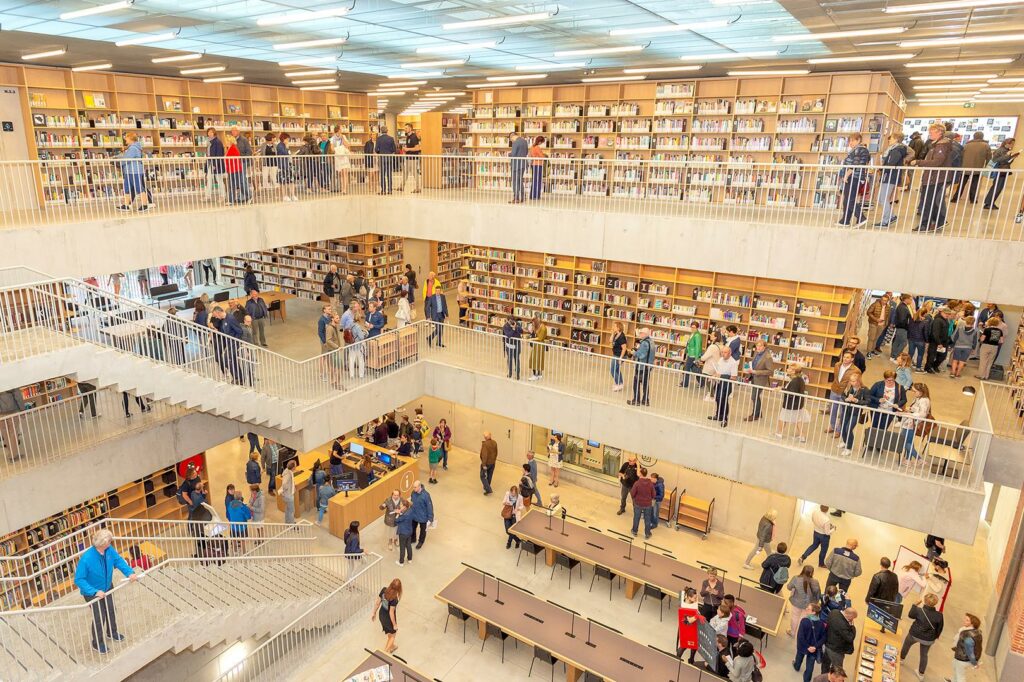Long gone is the time when public libraries were stuffy, outdated, excessively quiet spaces. Belgian libraries now offer a myriad of activities, events and more, and can be accessed for just a few euros a year – or even for free in Brussels.
Earlier this week, one Belgian library made international headlines for its innovative, unifying and creative approach. "This is more than a library, though books are at its core," said Els Van Rompay of Ghent's De Krook Library. "It's also a place to learn, connect, develop and collaborate. Or just to be."
Its unique structure and design and a large array of facilities and services have resulted in it being labelled as a "library of the future". But De Krook also marks a shift in libraries across the country, offering citizens several reasons to join.
Source of inspiration
Not only can you borrow books from public libraries, but also DVDs, CDs, newspapers, comics, magazines, e-books, audiobooks and more. Moreover, many libraries have a vast collection of foreign language books, including literature in Albanian, Dari, Farsi, Ukrainian and Turkish.
Museum, college and university libraries also offer academic literature, while heritage and preservation libraries showcase carefully preserved historical documents. Most libraries also have travel guides from every corner of the world. Those lacking inspiration can always ask for help from library employees.

Credit: Het Predikheren library
Aside from the services offered by libraries, their location alone can be worth the trip. As well as the beautiful De Krook in Ghent, Utopia in Aalst, the KU Leuven library, the Predikheren in Mechelen are all architectural gems.
These locations are also prime spots for anyone wanting some peace and an escape from the chaos of daily life. During exam periods, many libraries also open their doors to students for free to enable them to focus on work.
Valuable social role
Libraries are not only sources of information, but they also increasingly contribute to the social and cultural life of cities and towns.
Many Dutch-speaking libraries, for example, organise the event 'Bookstart' for parents to encourage their children to discover the pleasure of reading at a young age. Baby and toddler reading sessions are held, and young ones from six months onwards are invited to pick up their first book for free at the library.
Libraries also often host other reading sessions for people of all ages, sometimes featuring well-known writers, but also literature-inspired theatre and musical performances or film screenings. Debates and workshops are also regularly held. All these activities also help combat loneliness in communities.

Credit: Ans Persoons Cabinet
Some also have advice centres where library visitors can ask legal or other practical questions, such as filling in forms or booking appointments. During workshops, they can brush up on their digital knowledge, find out how to recognise phishing scams or learn how to use software such as Tax-on-Web.
For adults who wish to practise their Dutch or French (as well as other languages), some libraries offer courses and organise activities such as conversation tables with native speakers. Multilingual reading sessions are also common in larger libraries.
How to join
To borrow a book or benefit from these social and cultural benefits, all you need is a library membership card. You can ask for this in the library you wish to join. It is then linked to an online account through which books can be reserved, loans can be extended and more.
Since September last year, Brussels citizens can access all Dutch-speaking libraries in the region with just one free card. Avid readers can borrow 15 items from each library for three weeks.
In French-speaking libraries in the region, the Bibliopass library card is different per library for all municipalities, and every library applies its own rules and loan conditions. In Flanders and Wallonia too, the cost differs per municipality, but usually, it does not cost more than a few euros.
Related News
- Belgian library praised internationally as 'library of the future'
- Where to learn French and Dutch as an adult in Belgium
- Readers rejoice: Where to find English books in Brussels

The Hendrik Conscience library in Antwerp. Credit: Belga / Dirk Waem

